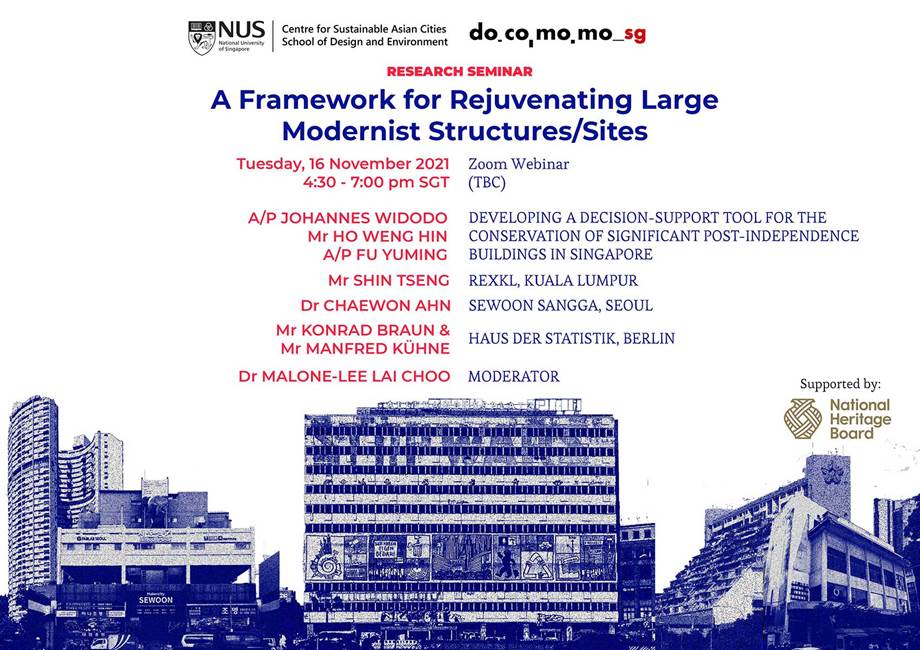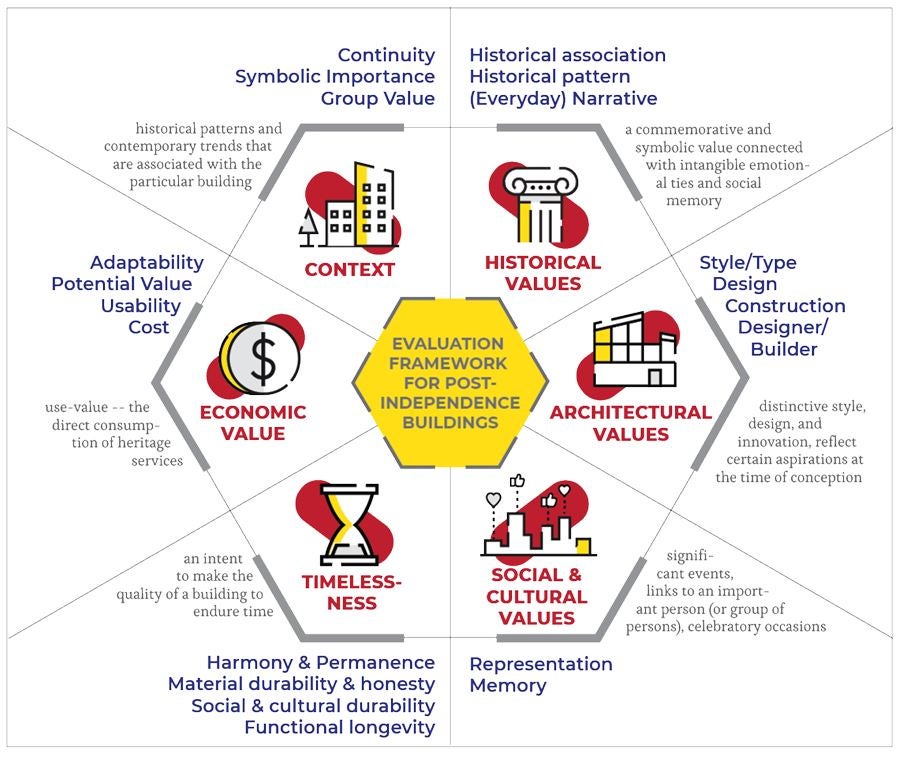Principal Investigators: Assoc Prof Johannes WIDODO, Dr MALONE-LEE Lai Choo
Co-PIs: Adj Assoc Prof HO Weng Hin, Assoc Prof FU Yuming
Introduction
In recent years, public discourse on urban conservation in Singapore has shifted to the consideration of post-independence buildings —structures rooted in the modernist architectural movement, characterized by distinctive designs, innovative concepts, and symbolic meanings that reflect Singapore’s developmental history. However, many of these buildings are situated in prime locations, making them vulnerable to redevelopment amid the city-state’s limited land availability and dynamic real estate sector. While architects and heritage groups favour their conservation, there remains no clear consensus on their heritage significance and conservation-worthiness. This uncertainty is compounded by the fact that many of these buildings are physically and technologically outdated compared to newer constructions and often suffer from poor maintenance.
At present, there is no formalised institutional approach to address the complexities involved in conserving these buildings. Conservation proposals are dealt with on an ad-hoc, case-by-case basis, which increases the risk of irretrievable loss of significant heritage assets, to the detriment of both current and future communities.
This research project was conceived to address this gap and concern, by developing a robust and transparent decision-support framework that systematically tackles the multifaceted challenges of conserving post-independence buildings. Bringing together professional, academic, and research expertise, the project aimed to comprehensively assess the architectural, socio-cultural, and real estate aspects of heritage management for these buildings. Specifically, the goal was to improve administrative processes, strengthen heritage governance, foster public trust, raise citizen awareness, and safeguard against loss and irretrievability.
Research Objectives
This study employed a multi-pronged approach to develop a decision-support system that includes:
- An assessment framework that enables comprehensive, transparent and critical assessment of the historical, socio-cultural and architectural significance of post-independence buildings.
- An economic evaluation tool that assesses these buildings within the context of current market forces, weighing economic costs, long-term viability, functionality, and sustainability.
- A critical understanding of the prevailing sentiments, contemporary values and attitudes towards conservation of these buildings, leveraging participatory involvement from relevant stakeholders.




